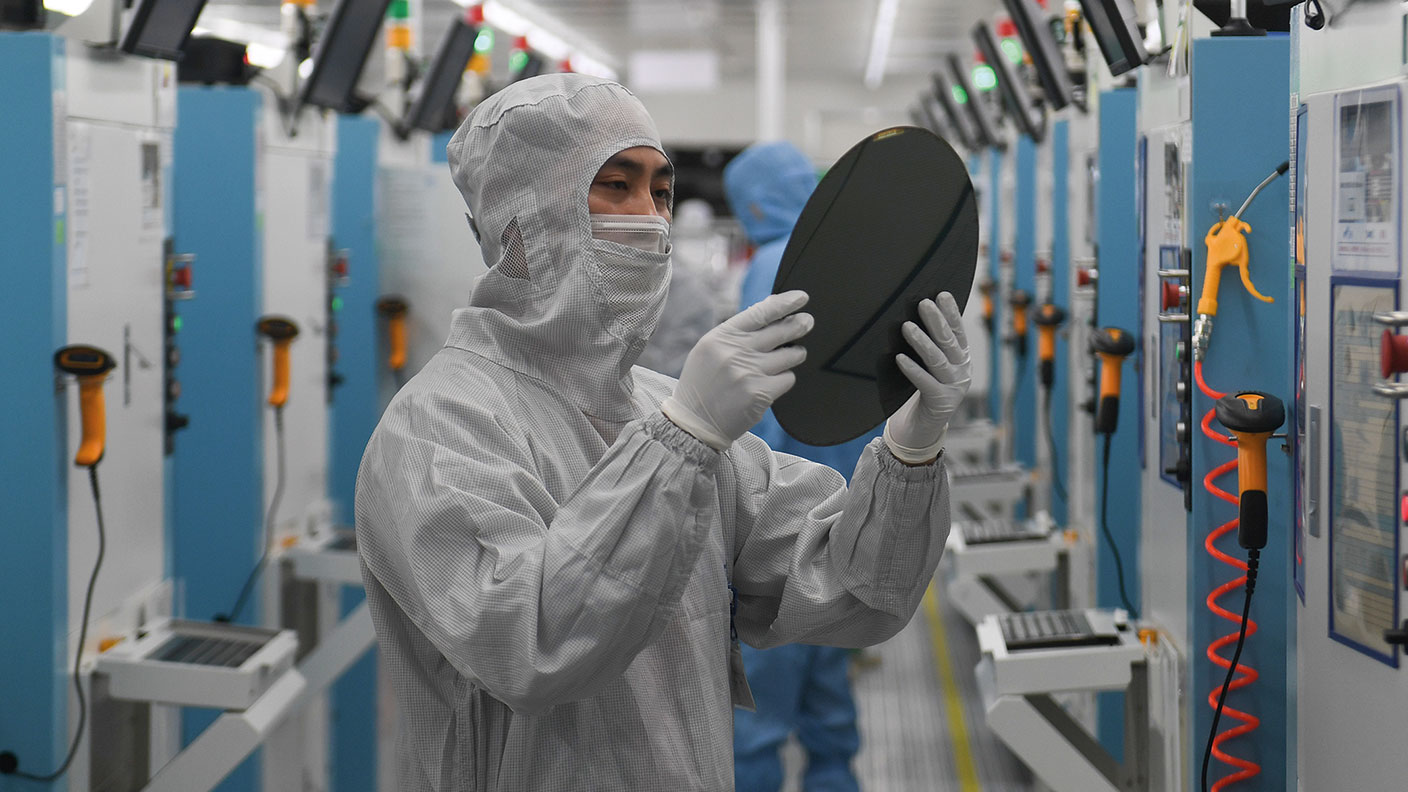The semiconductor shortage will drive an investment boom
The pandemic has caused a semiconductor shortage, and now governments are keen to create their own domestic microchip manufacturing sectors.


Get the latest financial news, insights and expert analysis from our award-winning MoneyWeek team, to help you understand what really matters when it comes to your finances.
You are now subscribed
Your newsletter sign-up was successful
Want to add more newsletters?

Twice daily
MoneyWeek
Get the latest financial news, insights and expert analysis from our award-winning MoneyWeek team, to help you understand what really matters when it comes to your finances.

Four times a week
Look After My Bills
Sign up to our free money-saving newsletter, filled with the latest news and expert advice to help you find the best tips and deals for managing your bills. Start saving today!
“Microchips, long revered as the brains of modern society, have become its biggest headache,” says Andrew Blum in Time. Pandemic-induced shocks to the semiconductor supply chain are “wreaking havoc” in surprising places.
When car sales plummeted early in the Covid-19 outbreak, carmakers cut orders for parts, including computer chips (a typical car contains more than 1,000 chips). “Manufacturers saw the slack and shifted their output to serve the surging demand for consumer electronics, such as webcams and laptops”. Now car sales are snapping back, but car firms can’t get enough chips to meet demand and so vehicle output this year is expected to be 3.9 million units (4.6% of global production) lower than it would otherwise have been.
The shortage should peak in the second half of this year, says Pat Gelsinger, the chief executive of chipmaker Intel, on Bloomberg. However, the chip industry is unlikely to be “back to a healthy supply-demand situation until 2023”. He forecasts strong growth in demand over the next decade, unlike some industry peers, who expect this crunch to be followed by a slump.
MoneyWeek
Subscribe to MoneyWeek today and get your first six magazine issues absolutely FREE

Sign up to Money Morning
Don't miss the latest investment and personal finances news, market analysis, plus money-saving tips with our free twice-daily newsletter
Don't miss the latest investment and personal finances news, market analysis, plus money-saving tips with our free twice-daily newsletter
But the outlook for this cycle may not be solely determined by market forces. “The strategic importance of the semiconductor industry is on the rise,” says Ma Tieying of Singaporean bank DBS. Policymakers have seen that “a country’s access to cutting-edge chips could have far-reaching implications for national security”. Hence America’s efforts to restrict China’s access to advanced technologies will push China to expand its domestic industry.
Meanwhile, the US – which relies on imports from South Korea and Taiwan – is keen to encourage firms to build new factories on its own soil. Expect “a massive, government-led investment cycle” – and a risk of supply gluts in the mid 2020s.
Get the latest financial news, insights and expert analysis from our award-winning MoneyWeek team, to help you understand what really matters when it comes to your finances.

Cris Sholt Heaton is the contributing editor for MoneyWeek.
He is an investment analyst and writer who has been contributing to MoneyWeek since 2006 and was managing editor of the magazine between 2016 and 2018. He is experienced in covering international investing, believing many investors still focus too much on their home markets and that it pays to take advantage of all the opportunities the world offers.
He often writes about Asian equities, international income and global asset allocation.
-
 Early signs of the AI apocalypse?
Early signs of the AI apocalypse?Uncertainty is rife as investors question what the impact of AI will be.
-
 Reach for the stars to boost Britain's space industry
Reach for the stars to boost Britain's space industryopinion We can’t afford to neglect Britain's space industry. Unfortunately, the government is taking completely the wrong approach, says Matthew Lynn
-
 Early signs of the AI apocalypse?
Early signs of the AI apocalypse?Uncertainty is rife as investors question what the impact of AI will be.
-
 8 of the best properties for sale with beautiful kitchens
8 of the best properties for sale with beautiful kitchensThe best properties for sale with beautiful kitchens – from a Modernist house moments from the River Thames in Chiswick, to a 19th-century Italian house in Florence
-
 Three key winners from the AI boom and beyond
Three key winners from the AI boom and beyondJames Harries of the Trojan Global Income Fund picks three promising stocks that transcend the hype of the AI boom
-
 RTX Corporation is a strong player in a growth market
RTX Corporation is a strong player in a growth marketRTX Corporation’s order backlog means investors can look forward to years of rising profits
-
 Profit from MSCI – the backbone of finance
Profit from MSCI – the backbone of financeAs an index provider, MSCI is a key part of the global financial system. Its shares look cheap
-
 'AI is the real deal – it will change our world in more ways than we can imagine'
'AI is the real deal – it will change our world in more ways than we can imagine'Interview Rob Arnott of Research Affiliates talks to Andrew Van Sickle about the AI bubble, the impact of tariffs on inflation and the outlook for gold and China
-
 Should investors join the rush for venture-capital trusts?
Should investors join the rush for venture-capital trusts?Opinion Investors hoping to buy into venture-capital trusts before the end of the tax year may need to move quickly, says David Prosser
-
 Food and drinks giants seek an image makeover – here's what they're doing
Food and drinks giants seek an image makeover – here's what they're doingThe global food and drink industry is having to change pace to retain its famous appeal for defensive investors. Who will be the winners?